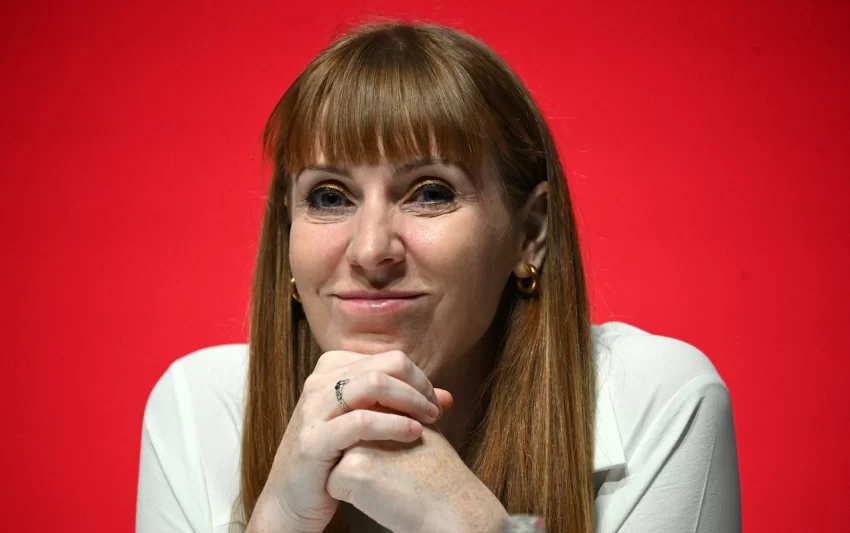Rachel Reeves’ bid to get Brits investing risks belly flopping
LONDON — Rachel Reeves needs Britain’s savers to feel richer. But she’s got a job on her hands convincing them to actually back U.K. companies.
In the next year, an advertising blitz launched by the U.K.’s top finance minister will hit screens extolling the benefits of investing in stocks and shares.
But an idea that originally looked set to give the ailing London Stock Exchange a much-needed boost could now end up sending more cash out of the country.
“It’s first and foremost encouraging people to learn more about investing on their own, as opposed to this being a solution to the U.K. capital market problems,” said one figure involved in the campaign, granted anonymity to speak freely.
Reeves — battling sluggish U.K. economic performance — announced the advertising push during a major speech to the City of London in mid-July. A campaign backed by several large financial services companies including Barclays, Hargreaves Lansdown and Schroders has echoes of the 1980s “Tell Sid” ads under Tory Prime Minister Margaret Thatcher, which urged Brits to invest in British Gas after its privatization.
Banking and investment reps were quick to applaud the chancellor for her bid to strengthen retail investment culture in the U.K. — allowing cash savers to put their money to work and get better returns while growing the British economy.
But while the drive may encourage savers to grab their very own slice of British companies, the inclusion of a major U.S. investment platform in the backing group — and the performance of the U.K. market compared to other major economies — means retail investors may well discover it’s best to put their money elsewhere.
Those capital markets problems
The LSE — once the pride of Britain’s powerhouse City of London financial district — has suffered from a sharp decline in listings and low trading volumes in recent years. In the first half of 2025, just £160 million was raised by companies debuting on the market, the lowest in 30 years, recent data from Dealogic shows.
Meanwhile, the exchange has been hit by a series of high-profile departures, most recently money transfer firm Wise, which is gearing up to move its primary listing to the U.S. due to a lack of liquidity and demand for its shares.
Over the last five years, savings in U.K. stocks and shares would have yielded a 51 percent return — not bad considering annual interest rates on cash accounts haven’t been much higher than 5 percent, even with inflation reaching double digits. But global stocks would have increased funds by a much healthier 92 percent.
As investment platforms like to remind investors, past performance doesn’t guarantee future results. Still, the City was expecting more of a British push in Reeves plan.
Speaking in June, LSE chief Julia Hoggett hinted that a “long-term public campaign” was on the horizon that would fix the cultural issues holding back U.K. capital markets and “get Britain investing in itself again.”
Dan Moczulski, U.K. managing director of eToro, which is not directly involved in the campaign but offers a platform where retail investors can purchase stocks and shares, said it “would be odd if this campaign didn’t have a ‘British’ overtone,” given that retail investors are more likely to buy into companies they already know.

Indeed, Reeves cited the lack of capital available for U.K. businesses as a key reason for the initiative. Yet Robinhood UK was included as part of the campaign’s backing committee, despite only offering U.S. stocks on its platform. Robinhood UK’s chief executive, Jordan Sinclair, said the firm will “ultimately” offer more markets — though he declined to give a timeline on offering access to U.K. stocks.
Mad Men-inspired
Whether savers act on the ads and invest their funds in British or overseas stocks — or simply sit the whole thing out — remains to be seen. Reeves was widely expected to reduce the £20,000 cap on cash savings that can be held in an ISA tax-free in a bid to incentivize individuals to open stocks and shares products instead. That plan never materialized.
And even the very best ad campaign may not be effective, warned Mike Coombes, COO at capital markets fintech PrimaryBid.
“Everyone thinks they’re Don Draper, but as the FCA’s [Financial Conduct Authority’s] Financial Lives data show, the British public has proved tricky to nudge into action,” Coombes said, referring to the City regulator’s recent findings showing British adults have little confidence or trust in financial services.
As it stands, there’s little information on how the campaign will actually work. Reeves told the Mansion House event it will launch next April, but its steering committee is not set to meet for the first time until at least September. The U.K. Treasury declined to comment when pressed for specifics.
While the campaign was originally pitched as being led by the Treasury and the Financial Conduct Authority watchdog, the regulator admitted to industry that it doesn’t have the resources to spearhead the drive, said Karen Kerrigan, COO of fintech firm Moneybox, which signed on to the campaign after the official announcement. Instead, firms settled on a “middle ground where government and FCA sponsor the campaign and private firms effectively fund it,” she added.
Those involved in the campaign say it was all rather last-minute. The plan to announce it at Reeves’ July 15 speech was only finalized days before the event, and the Investment Association was brought on to be the campaign’s secretariat just two or three days before, according to the person involved in the push.
As part of the campaign, platforms and banks will send their cash to a centralized group which will put out the ads, rather than individual firms running separate campaigns. The individual involved in the project said it’s likely to be ad giant WPP running the campaign.
But since the investment platforms that have signed on to the project already run comprehensive advertising campaigns, some are questioning whether the initiative will really have an impact.
Former LSE boss Xavier Rolet dismissed the campaign, saying before the launch that it was part of an “intensifying focus on gimmicks & quick headline-grabbing fixes.”
“Inevitably, we’ll have conflicts, like who’s putting in the most money, which comms firm are you using to drive the campaign etc. I’d love to see this launch in the next month or two, but my fear is it’s going to be a bit of a long slog,” Kerrigan said.




















:quality(85):upscale()/2023/09/18/918/n/1922398/a1136b676508baddc752f5.20098216_.jpg)
:quality(85):upscale()/2025/10/09/670/n/1922283/00b944c868e7cf4f7b79b3.95741067_.jpg)
:quality(85):upscale()/2025/10/15/765/n/1922398/29c37a6e68efd84bb02f35.49541188_.jpg)
:quality(85):upscale()/2025/09/09/891/n/1922283/7222624268c08ccba1c9a3.01436482_.png)
















